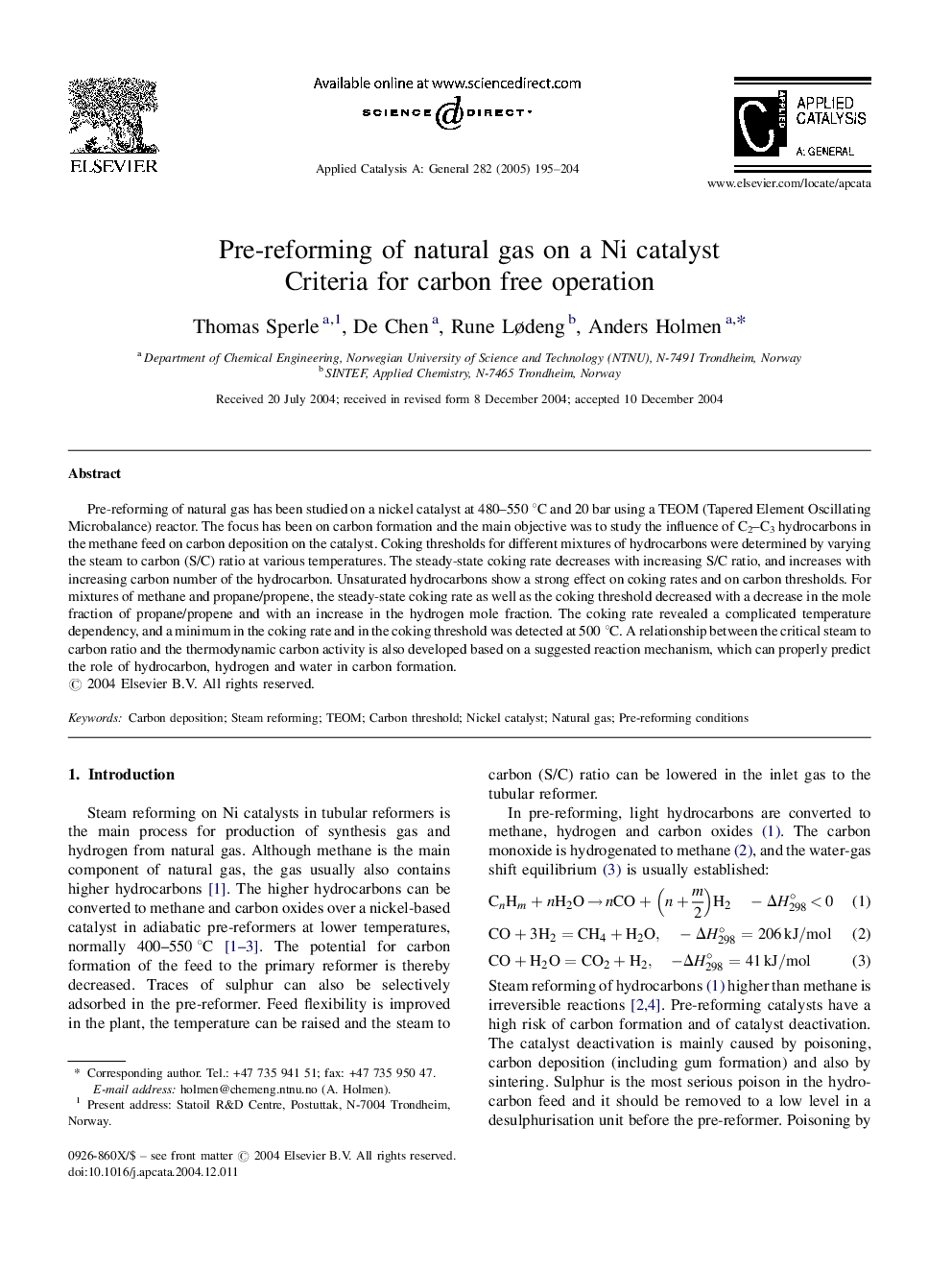| Article ID | Journal | Published Year | Pages | File Type |
|---|---|---|---|---|
| 9608054 | Applied Catalysis A: General | 2005 | 10 Pages |
Abstract
Pre-reforming of natural gas has been studied on a nickel catalyst at 480-550 °C and 20 bar using a TEOM (Tapered Element Oscillating Microbalance) reactor. The focus has been on carbon formation and the main objective was to study the influence of C2-C3 hydrocarbons in the methane feed on carbon deposition on the catalyst. Coking thresholds for different mixtures of hydrocarbons were determined by varying the steam to carbon (S/C) ratio at various temperatures. The steady-state coking rate decreases with increasing S/C ratio, and increases with increasing carbon number of the hydrocarbon. Unsaturated hydrocarbons show a strong effect on coking rates and on carbon thresholds. For mixtures of methane and propane/propene, the steady-state coking rate as well as the coking threshold decreased with a decrease in the mole fraction of propane/propene and with an increase in the hydrogen mole fraction. The coking rate revealed a complicated temperature dependency, and a minimum in the coking rate and in the coking threshold was detected at 500 °C. A relationship between the critical steam to carbon ratio and the thermodynamic carbon activity is also developed based on a suggested reaction mechanism, which can properly predict the role of hydrocarbon, hydrogen and water in carbon formation.
Related Topics
Physical Sciences and Engineering
Chemical Engineering
Catalysis
Authors
Thomas Sperle, De Chen, Rune Lødeng, Anders Holmen,
